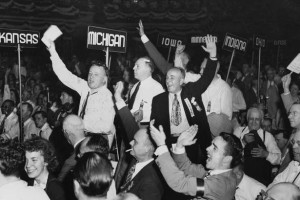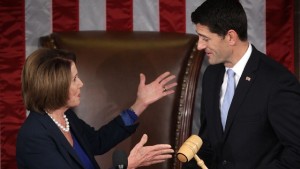Whenever the subject of “brokered convention” comes up in political circles, it always refers to Republicans.
The idea goes something like this: Several GOP candidates will remain in the race, dividing up the delegates among themselves, denying the frontrunner — whoever it is — the majority needed to sew up the nomination.
The delegates gather in Cleveland and then bicker among themselves, nominating someone on the umpteenth ballot.
It’s not likely to happen. But it could.
However, let’s play take this game a bit further.
What if the Democratic candidates do the same thing?
Two of them, Hillary Clinton and Bernie Sanders, are fighting for supremacy; a third candidate, Martin O’Malley, lags far, far behind.
But what if Sanders upsets Hillary Clinton in Iowa and then beats her in New Hampshire, which is next door to his home state of Vermont. He builds momentum heading into South Carolina. Perhaps he wins there, too. Then the fight is on.
Meanwhile, you’ve got O’Malley out there picking up stray delegates here and there in those primaries where winners do not take all.
Clinton and Sanders carve each other up to deny both of them enough delegates to get a majority at their convention.
Democrats gather in Philadelphia and commence a floor fight. No one emerges as the consensus. To whom do they turn?
Oh yeah. The vice president of the United States, Joseph Biden.
Will that happen? It’s far less likely to occur than a Republican donnybrook.
Then again . . .

